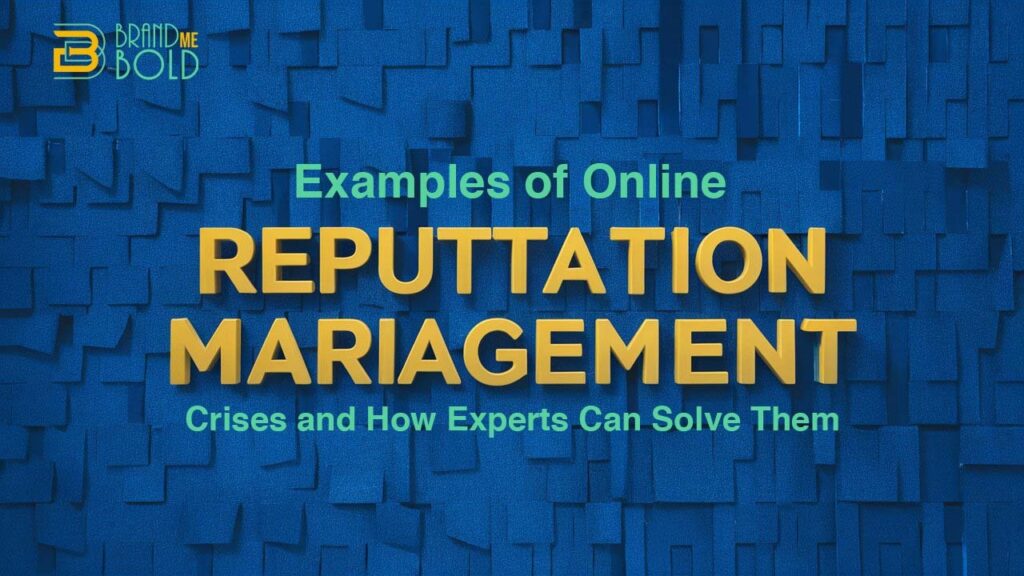Reputation management has always gained significant reputation from the businesses and brands. The advent of information technology and digital marketing has only made matters worse for these businesses.
Previously, reputation crisis wouldn’t go beyond a closed circle of customers because of physical limitation on information flow and communication. Internet has changed that. Nowadays, dissatisfied customers can go to internet to rants, bringing brand’s image down with these rants. Large businesses, seem to recover from these crises after some time, but these issues can claim the life of smaller businesses. Brands, particularly personal brands are especially prone to such attacks and their dire consequences.
If you are building a personal brand or if you have developed one, you must be aware of the risks posed by inadequate online personal reputation management. Not only do brands need to build their strong and credible reputation in the eyes of their stakeholders but they should also stay abreast of challenges that may undermine this reputation.
Here are a few examples of reputation management crisis that may emerge for a brand together with how online reputation experts will deal with them.
Negative Reviews
Negative reviews are the most common and most influential type or ORM crisis. If a client, customer, employee, or investor had a heated interaction with you and chose to go public about it, people will take his review seriously and your brand will suffer. Depending on the intensity of the issue, people may stop working with you entirely or be skeptical about your influence and put more defensive terms in contracts.
Reputed online reputation management services recommend dealing with such conflicts with a pinch of empathy and care. Respond quickly and start with appreciation of their hurt, understanding of the issue, or apology for the circumstance. At the same time, you must understand that most people in the public wouldn’t let this matter die only because of an apology. You must be vocal about what you plan to do to rectify the issue and how you plan to avoid such scenarios in future.
Complaints about Services
This is the second most common type of negative publicity a brand can attract. Note that this publicity is more targeted at bigger brands than at smaller ones. That’s because smaller brands are more accessible to their stakeholders through email and personal contact information. On the other hand, the line of communication in bigger brands and businesses is so complicated that the stakeholder feels lost. Because of this confusion and lack of access to the right authority, these complainants have no recourse but to name the brand on social media or online forums.
Take these complaints as they are – a way to seek remedy for their issues. If you have deployed online reputation management services, they will reply to such complaints promptly and empathetically in the same thread of conversation, strengthening your brand’s commitment to service. Then, they will prompt an inclusion of this issue in your schedule to further action. In the end, these representatives will ensure to follow up the complaint with a notification on how their issue is taken care of.
Criticism on Environment Footprint
Social responsibility is a key feature that determines the reach and credibility of many brands these days. People like to connect with and follow those brands that adhere to brand social responsibility standards. Some people have gone to great lengths to prioritize social responsibility over expertise.
Consequently, social responsibility can make or break the image of a company, and environmental impact of a brand has a great say on its image as a socially responsible citizen. Likewise, if your brand comes in hot waters because of its environmental footprint, it can cause a huge problem for you.
Online reputation experts will prevent you from trying online content removal technique as it can backfire. Instead, they will train you to acknowledge gaps in your services and branding message that is causing the discrepancy and voice the methods you are using to mitigate these impacts. Then, they will highlight all the ways your brand is helping the stakeholders building environmental sustainability. This way, negative content around your environmental footprint will be buried beneath positive opinions and reviews about it.
Criticism on Ethical Practices
Even if your practice takes immense care of environment, you can still show lapse on social responsibility front in one way or another. If your brand has attracted negative attention because such accusations, online reputation experts can help you deal with the crisis.
The solution will be similar to what you learned in the former section. You must refrain from trying to delete the content entirely from the internet. Instead, maintain a transparent front by acknowledging the issue and showing how you are trying to minimize its impact. You will also want to compensate this issue by presenting how your brand is upholding other matters.
Rumors and Fictitious Claims
Rumors are baseless accusation but when they catch the eyes of decision makers, they can tarnish the reputation of a brand severely. Most people will want to ignore such claims believing that they will die without attention. However, this response doesn’t bear fruits and can come back to bite you. The only response to such claims is refuting them.
Not every rumor and fictitious claim demands a direct response from the brand. Some of these claims are so unfounded, refuting them with the help of a reputation management expert will suffice. However, your expert will notify you if the claim has a potential to turn into a big issue. In that case, refuting the information assertively and quickly is the way to go.
Wrapping Up
Online reputation management is often overlooked by many personal brands. If you are reading this blog post, you already understand its importance and ready to manage it to reap the benefits of your branding experts sustainably. This blog post defines five major cases of online reputation management crisis together with the ways in which an expert will deal with them.



